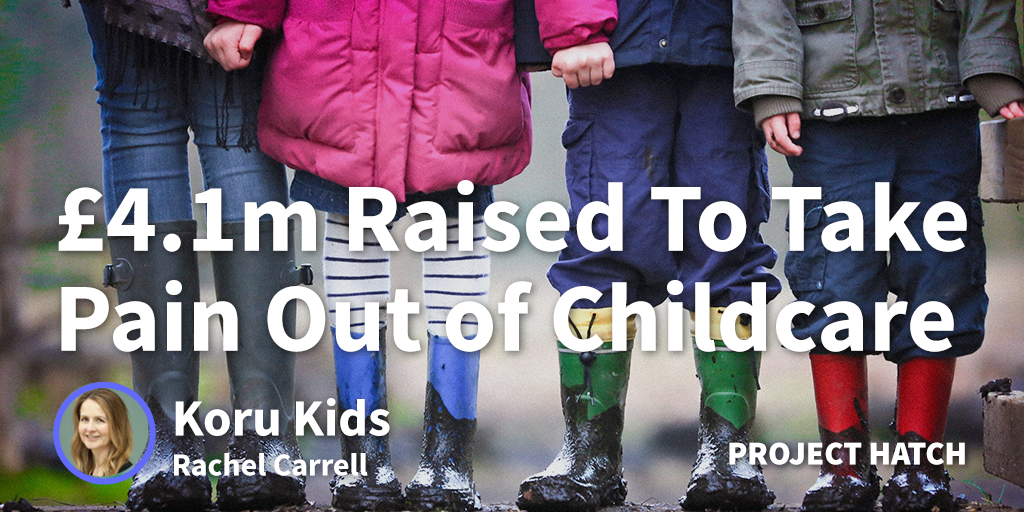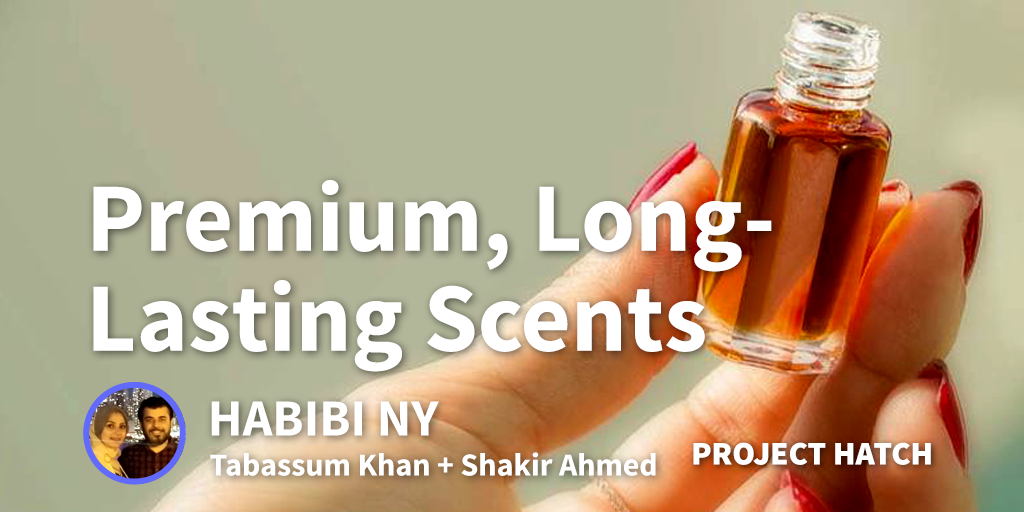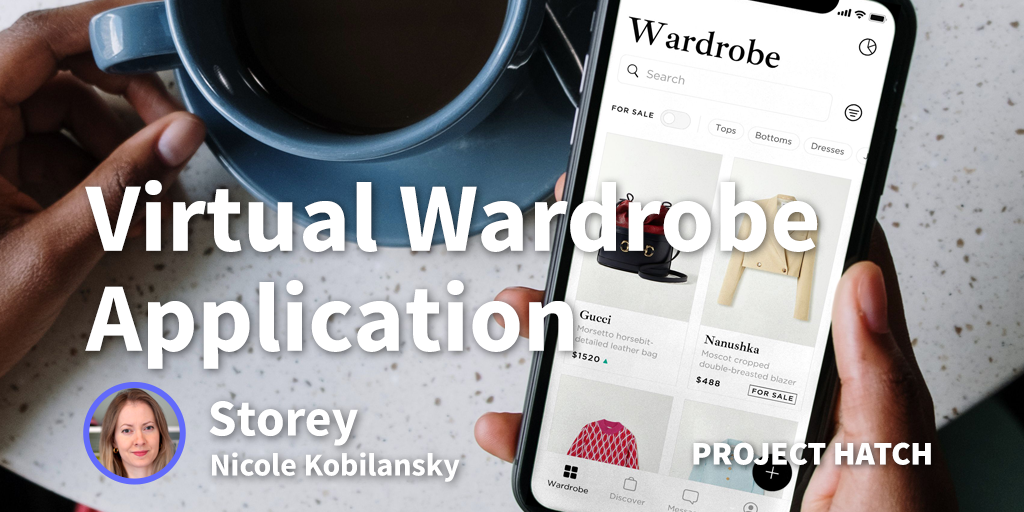Hiring a nanny in London is notoriously expensive and parents normally have to handle maternity, sick pay and reporting tax to HMRC. Koru Kids aim to take the hassle out of childcare. They hire and train nannies, allocate them to families for just the hours they need and take care of the paperwork. Rachel Carrell explained to me the lessons she learned working in a consultancy and launching her initial product and getting no conversions.
What does Koru Kids actually offer?
We’re building the world's best childcare service. As parents will already know, childcare is horrendous. It’s exhausting, very patchy quality, very hard to afford and usually financially crippling. There’s lots of problems to solve and ultimately we will solve all of them but what we’re focusing on right now is after-school care in London.
We recruit nannies to be after-school nannies - a very rare thing in london. We then train them up ourselves and match them with families; then manage the paperwork, payroll and pension for the family. We provide the nannies with ongoing training and support as well.
Your background is in consultancy - how did that impact your decision to start your own company?
My career at McKinsey was super important to me wanting to start something. I’ve always wanted to found my own business. I don't come from an entrepreneurial family, both my parents were teachers and I didn't really know business people growing up. It’s just something I've always wanted to do.
I waited until relatively late in my life as I was 34 when I founded Koru Kids but I learned a lot in the earlier years.
I worked at McKinsey 6 years - a really long time and I learned so much about how to think about different kinds of strategy and business and how to manage people and projects. That gave me loads more confidence to start my own thing.
I really admire people who start earlier in life, in their early 20’s but I just didn’t feel ready at that age.
I’ve seen that a lot of successful founders start their companies in their mid 30’s. Did being 34 mean you had more savings for funding?
It definitely gave me savings but I tried to de-risk from the start.
I already had a career, so I knew if the business failed, I had a job I could go back to. I also had savings and had saved pretty hard so I knew I could live off that for a while. The other thing is that I was married and my husband had an income as well.
I wouldn't have wanted to start a business before I had my relationship sorted out and before I felt as though I had a career. So I had de-risked it in a bunch of different ways.
No one ever talks about your relationship but it’s such an important part of it. You make these decisions that will affect the rest of your life. How financially secure does your partner want to be? People make these decisions on the basis of these things but no one ever talks about it.
How did you prove the idea before you left?
I was quite disciplined about this.
I did a job briefly which I wasn't really that into and that helped a lot actually. Leaving a career and a job I loved and starting something would have been another jump. But as it happened, I was pretty much going to leave anyway.
I thought that if I don't do it now, when all the stars are aligned and there's literally no reason for me not to do it, I may as well stop saying I’m ever going to do it because I don’t mean it.
Another way I de-risked it was that I set myself a really clear goal. I read “The Lean Startup” and it has lots of ideas on testing ideas without spending time and money on them.
One of the very classic things you can do is set up a website which is just a front door - just a proposition and see if people sign up to it. So I used Squarespace and I took a couple of days to make a website and then I tested it by promoting for free on facebook groups. I set myself a target of 20 signups and said if I achieve those 20 signups I'm going to quit my job.
I achieved 20 sign-ups and so I quit my job.
How is the cost reduced compared to other services?
A lot of parents find it incredibly hard to find after-school nannies. It's a service where there isn't enough supply. So a lot of families have to employ a nanny full-time even though they only need the part-time - which feels ridiculous, but for many families it's the only way of solving the problem. Our hourly rate may be fairly similar and in fact slightly cheaper than a full-time professional nanny but the real saving is that you only use them for the hours that you actually need.
Do you employ the nannies or are they freelance contractors who work with you?
They’re actually neither of those things, they’re employed by the parents. There's no other legal way of doing it. Their employment causes a big burden for parents because when you have all these employment obligations like maternity, sick pay and reporting tax to HMRC.
We do all of that for the parents and take away the burden.
Do the nannies find other jobs during the day or are just work part time?
Well, that's the thing. We have to find people who will specifically do after-school only and there are two types of people we typically find to do so.
One is older adults, usually older women. So a typical profile might be a grandma who does volunteering, has brought up her own kids and doesn't want a full time job but a part time job is perfect.
The other big group for us is university students. So again these are people who don't want a full time job. They just want a few hours a day, it's much more fun than a pub job or a shoe shop.
How many customers did you have when you raised your first round?
I actually went through investment surprisingly early on and got an unusual amount from unusual people early on. I founded the business and incorporated it in March 2016. I got my first paying customer in July - one customer - and I immediately started raising money.
I'm not technical myself. I had a PowerPoint presentation, I had a crappy SquareSpace website which I made myself and I had one customer that was okay with it. I got my first term sheet in August. It took a while to close and Legals took forever but I ended up receiving £600k in January. So about four months later.
Wow! So you raised £600k with just one customer?
I think I had three or something like that by the time the deal closed. It may have been five. It was a very very small number.
How did you manage to raise so much money? It’s quite non typical to be able to raise that much at such an early stage.
Yeah. I didn't realize at the time that it was, although it's not completely unheard of. You see startups coming out of places like entrepreneur first with big rounds for example - so it's not unheard of. But I think the main reason I was able to do that was because I already had a track record. It was not as a founder but I had a track record as an operator.
I'd been at McKinsey for six years, I'd then gone and I'd run an online doctor service which I'd grown a lot over three years and achieved good revenue figures. In every investor discussion I had, I mentioned that within the first three minutes of meeting them. That was kind of my calling card. I ran this (doctor service) business and took it from this much revenue to this much revenue. Had I not done that and got the experience, I would have struggled to raise in the way that I did.
It was entirely on track record. I was a little bit older and wasn't raising in my early 20s. I did have this other career before I became a founder and as it turned out, that helped a lot.
So now you have £600k, how do you grow the business from there?
So I brought on my first employee who was someone I had worked with before. She was the top junior team member at the other company I ran and did amazingly well there. By the time I left she had become part of the senior team but still came over to join me.
She and I got together in the trenches building Koru Kids. Neither of us were technical so we didn't build any tech. We were using off the shelf hacky platforms like sheets and Google maps.
We then we got overwhelmed with customer service and I decided to hire someone. I wanted someone who offered more than nice emails or phone calls so looked for someone who was smart and analytical.
I put up a free ad on the UCL job board and ended up hiring Kitty, who held a masters in climate science. She has a sharp and analytical mind from her science background. Two years later she developed into an awesome manager and looks after huge swathes of the business.
It was really important to me that I hired people who are high potential, data savvy and very adaptable. Kitty is one example of this, but I hire in a similar way throughout the business.
What happened after raising investment?
So far, the way I told the story everything seems to be smooth right?
I just raise the money and hire these people but you know startups are not actually that easy.
I didn't actually raise money with the after school idea. We were working on a different idea for about 6-9 months while raising money. This was before our public launch as I wanted to wait until we had raised and could do a big raise announcement launch.
When our funding came through we got this huge double-page spread in the Evening Standard and got thousands of sign-ups. We thought, "Oh this is great! Everything's going so well!"
And then….
No one converted!
We had so many sign-ups, but no-one actually converted. Our conversion rates were beyond dismal.
The idea we launched was a nanny share where one nanny looks after two families’ kids. I still believe this idea would absolutely work, it was just the precise way we went about it was slightly off.
At this point we had to decide whether to pivot towards after school. I remember speaking to our investors saying, “we have this other idea that is showing a lot of promise but is not the original idea we raised money for. What should we do?”
All of the investors said we should go after the thing that’s growing and so that’s what we did. Until that point we were doing after school as an experiment on the side.
I do remember that it was a difficult decision, it’s so hard to know when to persist with something and when to give up. You hear both sides, you hear that entrepreneurs never give up and then you also hear they’re flexible and pivot. It makes it so difficult to know when to do each thing!
How quickly did the new idea grow relative to the old one and how did you know it was the right idea?
It just felt easier. People often say product market fit is something you just know because it feels easy. It just felt like we were being pulled rather than pushing.
It was a tough decision. I remember the first thing I did was put someone on after-school full-time and said, “oh you can run the after-school service” which is hilarious now because we have so many people running it now and there’s no way that one person could do the whole thing.
How are you marketing apart from in the newspapers?
We had one PR launch but that was with the old product. Facebook has always been very important for us but a lot of it is word of mouth. Word of mouth scales amazingly well for what we're doing.
Right from the very start we've just tried to build an incredibly high quality service. One of the things about child care is parents just talk. So if your service is good then it gets amplified. Also if anything goes wrong it gets amplified as well, so it's high stakes. But the better your product is, the more people will talk. One of the great things about childcare is that parents want to help each other and they talk about childcare all the time.
Over the years have there been any horror stories with any children playing up or anything?
No, luckily nothing terrible. We pay a lot of attention to this and really go above and do far more than we actually are required to do. We do vastly more than what is legally required, but I think that is critical.
My background is in health care so when I was at McKinsey I did a lot of healthcare and the other business I ran for a while was also a health care business. I've worked in hospitals, so I have very much a health care orientation when I think about safety. Hospitals and healthcare organizations are always dealing with risk of terrible things. It really is a matter of life and death and so a lot of the processes that I brought in are things that I learned from health care.
In healthcare you have this idea of a ‘never event’, it is an event that should never happen. An example would be chopping off the wrong leg of someone or removing the wrong body part. Hospitals have all these procedures to prevent ‘never events’ like checklists and we've imported a lot of that stuff.
Are you looking to expand nationally or internationally?
Yeah. I get parents contacting me quite a lot saying, "can you open up where I live?" Or occasionally I get parents saying, "can I open Koru up where I live?" People also tell me they run their own business and they want to run my business where they live. So I feel like if we were to franchise there would be quite a lot of appetite but the absolute hardest part of my job is saying no to things.
I think we're so mission driven and there are so many problems to solve it is almost physically painful turning down opportunities, but we just have to. It's so hard keeping focus and saying no to so many things but we're just going to be very focused on what we're doing and making our product as good as it possibly can be. We have a lot of products that we still need to build.
What apps help you run the business day-to-day?
It's probably no surprise that we use Slack a lot. We have an e-mail system I really like called Front. We were one of the early users of Front. It's grown very quickly. It was a Y Combinator startup. We use Metabase a lot, we use AirTable a lot. We're kind of nerdy, we get excited about new database software. We love AirTable. We use Zapier, we use Twilio. We don’t use Squarespace any more, though. Luckily now we have people whose website skills are much better than mine.
| Company Name: | Koru Kids |
|---|---|
| Founder: | Rachel Carrell |






